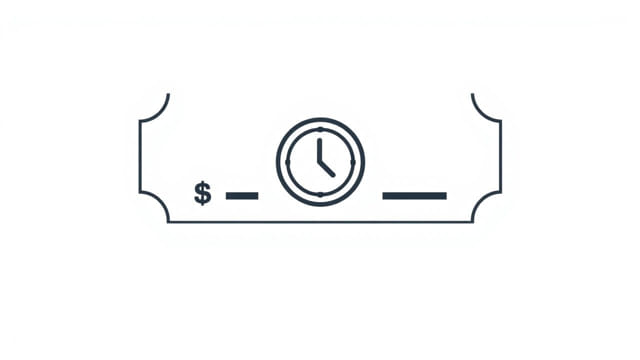When businesses seek to raise capital for expansion, infrastructure development, or long-term investment, they often turn to different forms of borrowing. One such method is through issuing debentures. A debenture is a financial instrument that allows a company to borrow funds from the public or institutional investors under a legal agreement. While many people are familiar with loans and bonds, the nature of debentures can sometimes be misunderstood. A common question that arises is whether a debenture qualifies as long-term borrowing. To answer this, it is essential to understand the features, classifications, and financial implications of debentures in the context of corporate finance.
Understanding Debentures
Definition and Nature of Debentures
A debenture is essentially a type of debt instrument that is not backed by physical assets or collateral. Instead, it relies on the general creditworthiness and reputation of the issuing company. Companies use debentures as a tool to raise money from investors with the promise to repay the principal amount along with a fixed interest rate within a specified time frame.
Key Characteristics of Debentures
- Issued by corporations or governments
- Carry a fixed rate of interest
- Have a defined maturity period
- May be secured or unsecured
- Tradable on financial markets
Because they are often issued without security, debentures are usually backed by the issuing entity’s ability to generate income and fulfill its debt obligations.
Long-Term Borrowing Explained
What Is Considered Long-Term Borrowing?
In finance, long-term borrowing refers to any loan or debt instrument that has a repayment term longer than one year. It includes loans from banks, bonds, and debentures that have extended maturity dates. Long-term borrowings are typically used for significant capital expenditures, such as building new facilities or acquiring expensive assets that will yield returns over an extended period.
Debentures as Long-Term Borrowing
Yes, debentures are generally classified as long-term borrowing instruments. Most debentures have maturity periods ranging from five to thirty years. The long-term nature of these instruments makes them ideal for companies looking to finance large-scale projects without the pressure of short-term repayment.
Types of Debentures Based on Tenure
Redeemable Debentures
These debentures come with a fixed maturity date, and the issuing company is obligated to repay the principal amount on or before that date. Redeemable debentures are the most common and usually considered long-term borrowings if the redemption period exceeds one year.
Irredeemable or Perpetual Debentures
Some companies may issue irredeemable debentures, which do not have a fixed maturity date. These are rarely used and are typically classified as permanent capital rather than borrowing. However, they still count as long-term liabilities on the balance sheet.
Convertible and Non-Convertible Debentures
- Convertible Debentures: These can be converted into equity shares of the company after a specific period. Until conversion, they are treated as long-term borrowings.
- Non-Convertible Debentures (NCDs): These cannot be converted into shares and remain debt instruments until maturity. NCDs are often used for long-term borrowing purposes.
Why Companies Choose Debentures for Long-Term Funding
Advantages Over Short-Term Loans
Debentures offer several advantages when compared to short-term loans or traditional bank financing:
- Lower interest rates due to fixed terms and longer repayment periods
- No collateral required, especially in the case of unsecured debentures
- Maintains ownership structure, unlike equity financing
- Predictable interest expense helps with budgeting and planning
Ideal for Capital-Intensive Projects
Infrastructure, manufacturing plants, technology upgrades, and other capital-intensive investments often require significant upfront capital. Debentures are suitable for these kinds of long-term investments because they allow for extended repayment horizons, aligning with the long-term benefits of the project.
Accounting Treatment of Debentures
Balance Sheet Classification
Debentures appear as long-term liabilities on a company’s balance sheet. The amount raised through the debenture issue is recorded as a liability, while the interest payable is treated as an expense in the income statement.
Impact on Financial Ratios
Issuing debentures affects a company’s debt-to-equity ratio and interest coverage ratio. High levels of long-term borrowing, such as through debentures, increase financial leverage, which can be advantageous or risky depending on the company’s earnings capacity.
Risks and Considerations for Debenture Holders
Credit Risk
Because many debentures are unsecured, investors must consider the creditworthiness of the issuing company. If the company fails to meet its obligations, investors could face losses.
Interest Rate Risk
Debenture holders are exposed to interest rate fluctuations. If market interest rates rise, the fixed interest income from debentures becomes less attractive, potentially lowering the market value of the instrument.
Liquidity Risk
Some debentures may not be easily traded in secondary markets, making it harder for investors to sell their holdings before maturity.
Comparison with Other Long-Term Borrowing Instruments
Debentures vs Bonds
While both are debt instruments, bonds are typically secured and may be issued by governments as well as corporations. Debentures are more often unsecured and are associated with corporate finance.
Debentures vs Bank Loans
- Collateral: Bank loans often require collateral, debentures may not.
- Flexibility: Bank loans can be negotiated more easily, while debentures are standardized.
- Cost: Interest rates on debentures can be lower than on unsecured bank loans.
debentures are indeed a form of long-term borrowing. They allow companies to secure large sums of money for extended periods without giving up equity or pledging assets. While they come with certain risks for investors, such as credit and interest rate risk, they remain a valuable financial instrument in corporate financing. Understanding the structure, tenure, and implications of debentures is essential for both companies looking to raise capital and investors seeking fixed-income opportunities. Whether for infrastructure development, technology upgrades, or business expansion, debentures serve as a strategic tool for long-term growth and sustainability.
